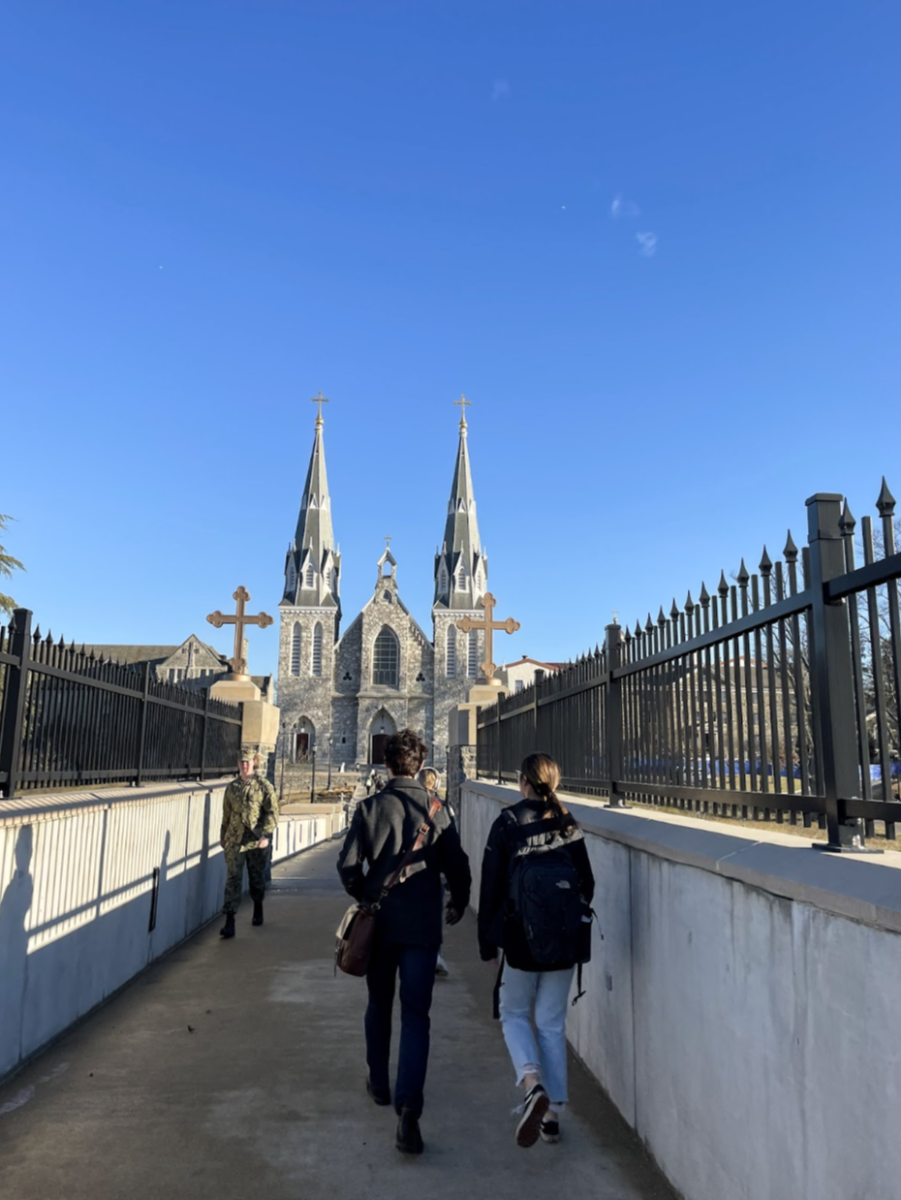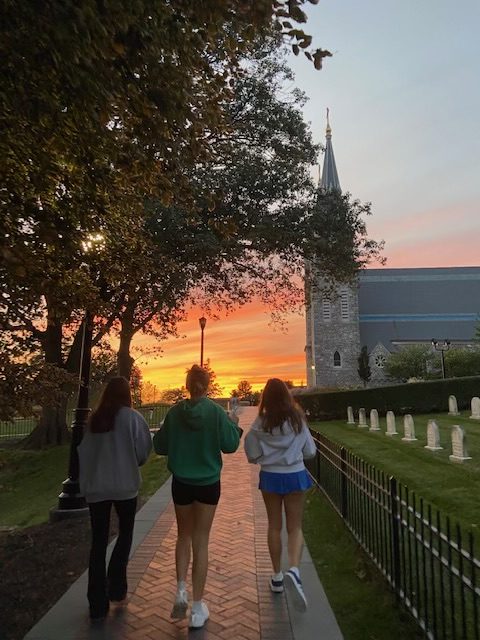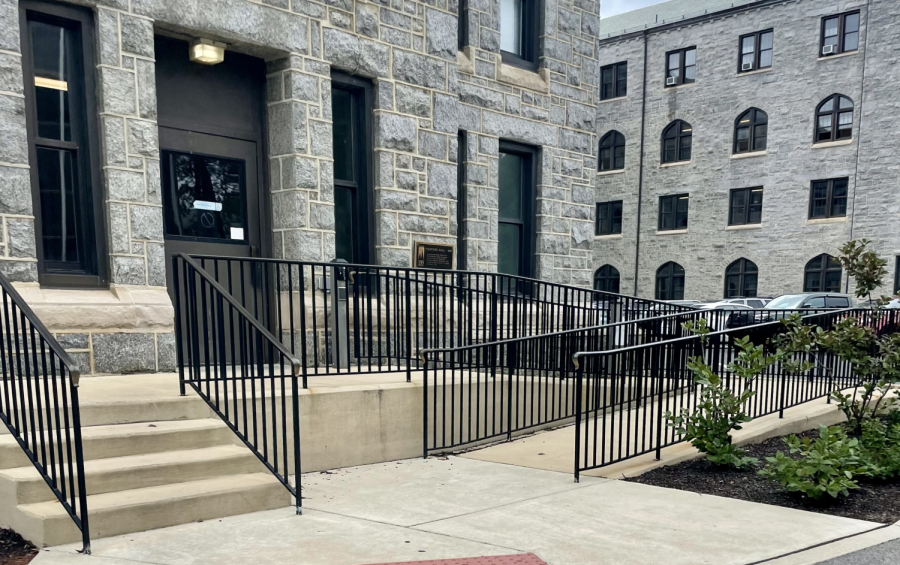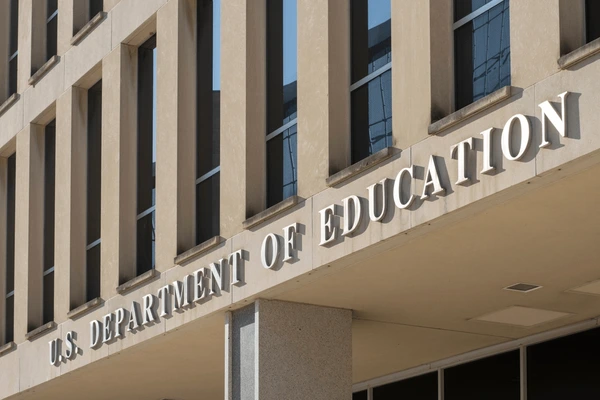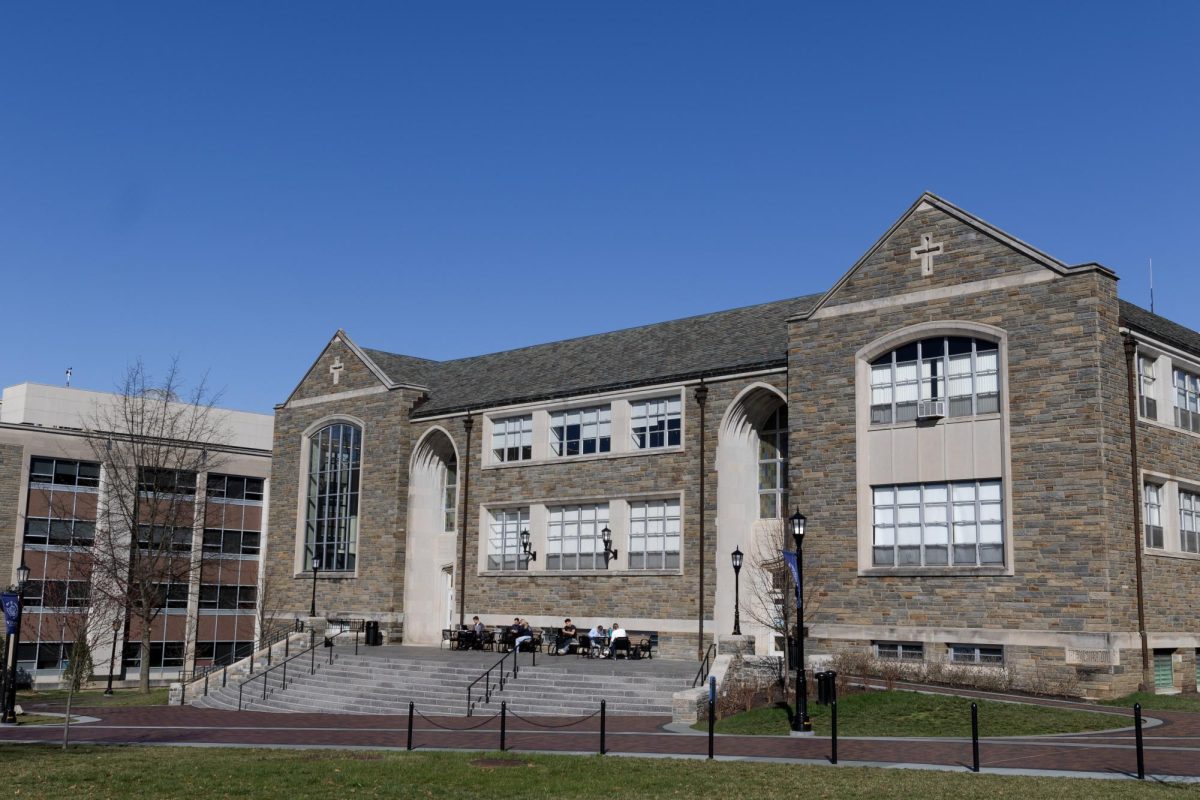On Thursday, Feb. 13 at 4 p.m., Villanova University’s Office of Mission and Ministry honored its first-ever social scientist at the 12th annual Civitas Dei medal ceremony held in Scarpa Hall of the Charles Widger School of Law. The 2025 honoree, Michelle Dillon, Ph.D., an esteemed professor of sociology and the Dean of the College of Liberal Arts at the University New Hampshire, received this honor for her work and publishing in the field of sociology of religion and adjacently in contemporary Catholicism.
The Civitas Dei Medal derives its Latin name from one of St. Augustine’s seminal works, known in English as The City of God. This honor was created by Villanova to pay tribute to an individual who has contributed significantly to the celebration of the Catholic faith and its intellectual traditions, including the pursuit of truth, beauty and goodness.
To open the ceremony, Dillon was warmly introduced by fellow sociologist of religion and familiar colleague, Villanova’s Assistant Vice President and Director of Mission Engagement & Strategic Initiatives, Dr. Tia Noelle Pratt, Ph.D. Pratt described Dillon as, “an esteemed scholar whose work meant so much to my own.”
Dillon delivered a captivating lecture.
She discussed how Catholicism functions in a post-secular society. Her rhetoric centered around how it is necessary to reflect on and facilitate discussion about discrepancies between religious practices and realities of modern life because, “secularization is the settled reality, at the same time religion still matters.”
“We have to have this respectful conversation with Catholicism for dealing with modernity,” she said.
She stressed the importance of reflexive dialogue and how it cannot simply be, “dialogue for the sake of dialogue, or to reach some fuzzy consensus.”
Dillon utilized real world evidence of secularization like the increasing percentage of people who choose not to identify with any religion. She named some discrepancies between the publicized Catholic rules, such as those in opposition of contraceptives and the lack of adherence to such rules as a reality of the modern age. Another example was the rising approval rate of same-sex marriages, and the resulting selective allowance by the Catholic Church to bless same-sex couples.
Dillon also examined this evolution of Catholic values in recent history through the scope of the statements of recent popes, including Pope Francis, Pope Benedict XVI and Pope John Paul II. These figureheads have dealt the most with the drastic societal secularization in recent history, and the papacy continues to grapple with these challenges. A well-known example of this evolution is the publication of Pope Francis’s “Laudato Si’” which voices criticism for overconsumption and irresponsible economic development, deplores environmental degradation and global warming and stresses collective unified action and the strength and value of the common good.
“[An example of this is] reaching out and saying who is my neighbor and how can we bring God to our neighbor?” Dillon said.
Dillon was a passionate and engaging speaker who struck a fine balance between respecting the Catholic traditions and acknowledging the room for progress and the benefits of integrating modern ideas rooted in secularization into the Church. She focused on the Church’s position on gendered ordination.
“The position of women’s ordination in the Church, from a post secular perspective needs to be reflected on,” Dillon said.
She recognized the benefits of having a larger population of people eligible to become ordained as a resource in the Church’s favor as the population of religiously-affiliated people shrinks. Although she did not explicitly petition ordination of women, she presented its benefits and explained how reevaluation of policy on this, same-sex marriage and contraceptives might prevent the isolation or disaffiliation of Catholics who do not align with the Church on such issues.
“Reflexive dialogue does not discount any option,” Dillon said.
Dillon is doing important work in the name of Catholicism and is calling on other people to consider this work and make efforts of their own to advance Catholicism in the post-secular world.

